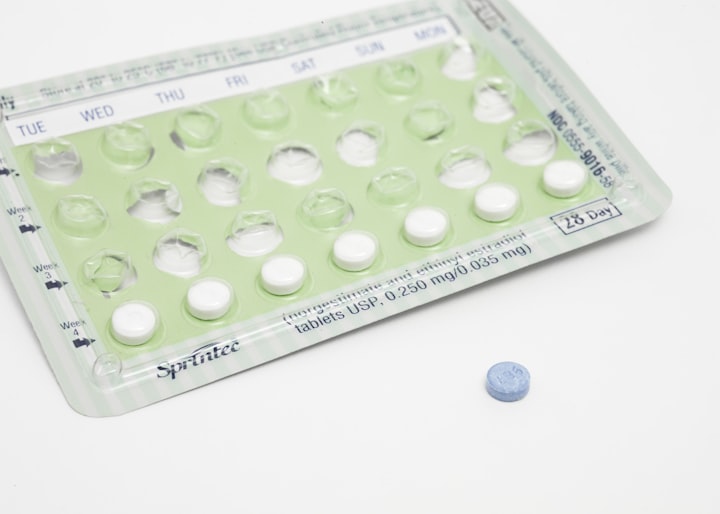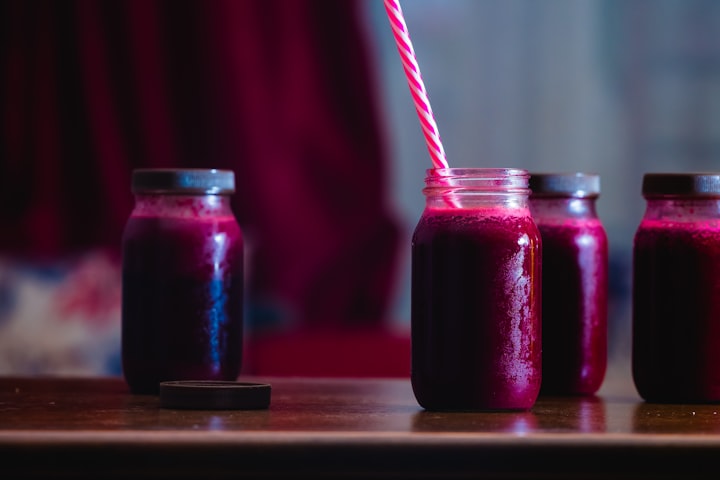The Myth of the Birth Control Detox
Debunking women's health nonsense, one myth at a time.

“You need to detox your body after coming off of birth control.”
I have to believe that people spout this off because they actually care – not because they’re selling a product “designed” to treat an issue they talk about. I have to. I can’t let myself believe people exist out there, thinking about the ways they can intentionally hurt others just to make a buck. I don’t think I would be able to function – the anger would consume me.
But let’s be real. Despite the intentions, there are a LOT of myths in the world about the transition off of birth control. From harmless claims about nutrient deficiency to incorrect and terrifying threats of PCOS, they’re all out there.
So let’s get serious here. Do you actually need a detox after stopping birth control?
The short answer is no, but let me explain.
Hormonal birth control functions to prevent pregnancy (along with other side effects that may provide benefits depending on the person – think heavy bleeding, acne, mood swings and more). The hormones in birth control are slightly different than the hormones that naturally exist in our bodies – the progestin in specific is not like progesterone, and instead is more like an androgen in its function to balance estrogen.
With the withdrawal of these hormones, the body can return to its pre-birth control state. This is not associated with the cause of disease such as PCOS or endometriosis or infertility, but if issues existed prior to the use of birth control it’s likely they will become more evident once hormonal suppression is removed.
What are the big myths around birth control detoxing?
1. Stop drinking alcohol as it damages the liver tissues. Now this actually has a little bit of merit, but I had to include it anyways. Alcohol is carcinogenic (regardless of whether it’s organic or not) and over time contributes to the risk of liver disease including cirrhosis. Alcohol is a bully in metabolism, butting to the front of the line and often blocking up valuable space needed for our nutrients and our hormones. Avoiding alcohol when you’ve recently stopped using birth control may be of benefit to get the body in gear for breaking down hormones, both supplemented and your own. Reducing intake and considering sober curiosity can be options for folks who are unable to access full avoidance (harm reduction saves lives, folks).
2. Drink double your body weight in water. While your kidneys do need fluids in order to assist in the detoxification pathways for hormones, excessively dumping more water into your body isn’t the answer (and you’re probably going to feel so uncomfortable). Drinking water through the whole day is a much better option, especially if you already struggle with drinking enough. You can, in fact, drink too much water – it dilutes your sodium levels too much and impacts heart and brain function. Fluids can come from a myriad of different places, including tea, juices, milk, soups and yes, even coffee in moderation.
3. Oils are inflammatory so cut these out, especially canola. Canola oil is rich in omega-3s, more so than olive oil (its only other competitor would be flax oil, but its not great for cooking with its low smoke point). Fats in general assist in hormone production by providing cholesterol, however adding more cholesterol doesn’t necessarily mean more hormones – it’s about a beautiful balance of lifestyle factors AND the cholesterol. One place to consider swapping is in the field of saturated and trans fats, which increase “bad” cholesterol levels and increase the risk of cardiovascular disease.
4. Wheat, soy, dairy and corn are hormone disruptors. All of these foods provide benefits (on the condition a person doesn’t have an allergy to them) – wheat and corn are great options for adequate fibre, needed for healthy digestion and hormone detoxification. Soy and dairy are both options for protein, and can be selected on the basis of being vegetarian or not; soy has additional benefits in providing phytoestrogens that may reduce cancer risk. If there’s no medical reason to remove them, don’t.
5. Don’t eat sugar. This is just bogus – the brain relies on glucose to function, and it can thankfully get it from multiple sources. Cutting out sugar increases sugar cravings, creates food shame and guilt and doesn’t necessarily make you healthier. Skip this one.
6. You need a medical grade detox. Colonoscopy prep is a medical grade detox. Drinking a cleanse is unnecessary and may not even be regulated. Pass.
Long story short, you don’t need a birth control detox – but you do deserve access to a variety of nourishing foods based on your preferences. Working with a women’s health dietitian can help you prioritize your wellness and nutrition both while you’re on and coming off birth control – visit me at sayyestonourish.com to learn more about what I do!
About the Creator
Emily the Period RD
I help people with periods navigate menstrual health education & wellness with a healthy serving of sass (and not an ounce of nutrition pseudoscience).






Comments
There are no comments for this story
Be the first to respond and start the conversation.